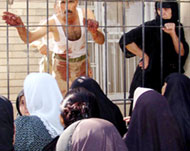Many Iraqis killed in multiple attacks
A bomber has killed at least 13 Iraqi traffic policemen after he rammed an explosives-packed car into them on a sports field in the Kurdish city of Arbil, the latest strike against the country’s security forces.

At least 77 Iraqis have been killed in two days of attacks and assassinations across the country while US and Iraqi forces battle fighters in offensives in al-Anbar province that stretches from near Baghdad to the Syrian border.
One of the wounded in Monday’s Arbil attack said the bomber, dressed as a policeman, had driven a red Chevrolet onto the field where around 160 police were exercising.
Meanwhile, the Army of Ansar al-Sunna, a group linked to al-Qaida network, said in an internet statement it had killed a Japanese contractor in Iraq and six of his Iraqi guards.
The statement, whose authenticity could not be verified, said al-Sunna fighters had ambushed a convoy as it was leaving al-Walid military base near the city of Ramadi, west of Baghdad.
Barzani’s plea
The Arbil attack came as Massoud Barzani, the Kurdish region’s new president, was in Baghdad calling for the country’s next constitution to allow the three northern provinces to continue to govern themselves, possibly from the contested northern oil city of Kirkuk.
Kurdish demands have angered Sunni Arabs, who are accused of fuelling the unrest that has gripped Iraq since the downfall of former president Saddam Hussein in April 2003.
 |
|
Monday’s attack in Arbil was the |
Elsewhere in the north, 15 Iraqis were killed in several attacks, including a Kurdish official and his three bodyguards.
In Baghdad, five Iraqi policemen were killed as they went to help US forces battling fighters in the southwest al-Bayaa district who had managed to elude a massive security cordon around the capital.
At the heavily guarded Baghdad International Airport, a car bomber killed one person and wounded two others near the main outer gate.
Armed men also tortured and killed two Iraqis and kidnapped four others in the Triangle of Death south of Baghdad, police and hospital sources said.
Ongoing offensive
For its part, the Sunni Iraq Islamic Party said 100 people had been killed and 150 had been wounded in four days of combat between a 1000-strong US and Iraqi force and fighters near the Syrian border.
The toll could not be independently verified, and conflicted with US military reports that 53 “insurgents” had been killed near the border and another 15 in a separate offensive dubbed Operation Dagger near Lake Tharthar to the southeast.
|
“We ask [the Iraq government] to send medical relief to Qaim and Karabilah” Osama al-Jadaan al-Sanad, |
A tribal leader in Karabilah near the border came to Baghdad to beg for medical supplies and called on leaders to stop the
fighting.
“We ask [the government] to send medical relief to Qaim and Karabilah,” Osama al-Jadaan al-Sanad, head of the Karabilah tribe, said.
“We must force US forces and the Iraqi Defence and Interior Ministries to stop bleeding the innocent in Karabilah under the pretext that they are terrorists,” he said.
Despite the grinding diet of death, officials hope to “re-engage the international community in stabilising and building” Iraq, Foreign Minister Hoshyar Zibari said in advance of an international conference in Brussels on Iraqi reconstruction.
Sure to re-ignite controversy, Iraqi legislators from across the political spectrum called for the withdrawal of the roughly 160,000 foreign forces in a letter released on Sunday from 83 of the 275-member parliament.
Domestic pressure
The move came as US President George Bush faced domestic pressure to pull his troops out of Iraq.
Iraqi authorities also announced on Monday that they were still on the trail of Saddam’s purported right-hand man Ezzat Ibrahim al-Duri, the highest-level government official still at large.
 |
|
Basic services and supplies have |
“The hunt continues for Ezzat Ibrahim al-Duri, member of Saddam Hussein’s former regime and vice-president of what was called the Revolutionary Command Council,” the government said in a statement.
Al-Duri has a bounty of $10 million on his head.
Illustrating just how fragile relations between the country’s ethnic groups have become, Barzani called a press conference to deny a US press report that minority Iraqi Arabs and Turkmen had been been abducted in Kirkuk and hauled off to prisons in Arbil and Sulaimaniyah.
“The information published by The Washington Post is groundless and accusations made in them are false,” Barzani said.